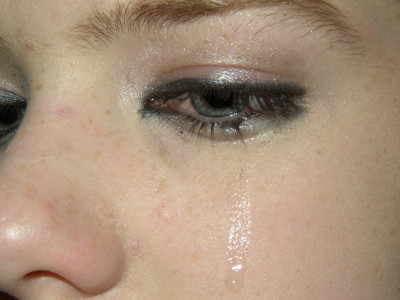2021 Ig Nobel Prize Winning Research List

On September 9, 2021, the 31st edition of
Improbable Research
https://www.improbable.com/2021-ceremony/
Sex can relieve nasal congestion, and other work honored by 2021 Ig Nobels. | Ars Technica
https://arstechnica.com/science/2021/09/feline-acoustics-the-smell-of-fear-and-more-receive-2021-ig-nobel-prizes/
The 31st award ceremony will be held online, continuing from last year. You can watch the award ceremony from the official YouTube channel , and you can check live streaming with Japanese subtitles on Nico Nico Live Broadcasting.
The 2021 Ig Nobel Prize-winning research is as follows.
Biology Award: Acoustic analysis of a wide variety of cat sounds
Acoustic analysis clarified that there are differences in intonation in the meowing of cats, suggesting the possibility that humans can discern the intentions of cats from the differences in the meowing of cats. was given.
The included studies were five studies in 2011 , 2012 , 2013 , 2014 and 2016 led by Suzanne Schutz of Sweden. Mr. Schutz with cat ears participated in the award ceremony, and the trophy was awarded over the screen. This year's trophy is a 'gear' made of human teeth. It was sent as PDF data because it was difficult to send it as international mail due to the pandemic.

◆Ecology Award: Research that captures changes in bacteria contained in chewing gum thrown out on the side of the road
The ecology prize was awarded to

Chemistry Award:
Due to the extreme scenes used in the movie, viewing may be restricted by age. Jörg Wicker of Germany and others identified chemical substances from the breath of people watching movies, and specifically which scenes such as violence, drugs, and sexual scenes that appear in movies affect humans. We conducted two studies in 2015 and 2018 to investigate whether
Wicker and his colleagues attempted to demonstrate that chemical measurements could be used to make accurate age limits, but unfortunately it was concluded that no definitive classification could be made.
◆ Transportation Award: Research that it is better for health to hang rhinos upside down when transporting them
Due to the declining population of rhinos due to poaching and the danger of inbreeding, there was an effort in Africa to transport rhinos to distant habitats. Due to the undulating terrain, land transportation was difficult, and a helicopter was used to transport the rhino in the air, but in this case, a cheaper and simpler method called `` upside down '' was used.
When Robin Radcliffe and others in the United States conducted research on the idea that the technique of hanging upside down might have an adverse effect on rhinoceros, it was found that the airway was opened by stretching the spine and the amount of breathing increased. It turned out to be healthier.

◆Economics Prize: Study that obesity among political leaders is correlated with political corruption
The economics prize was awarded to research that suggested that political corruption such as bribery and extortion is likely to be rampant if the top of the country, such as the president or prime minister, is obese.
France's Pablo Blavatsky, who conducted this study, could not obtain the medical records of political leaders, so instead, he estimated BMI by applying image recognition to facial photographs. When we linked the obesity level of political leaders in 15 countries with estimates of political corruption, we found that there was a high correlation between the two. Blavatsky concludes, ``Although obese politicians are not necessarily more corrupt than non-obese politicians, obesity may be an indicator of political corruption.''
Medicine Award: Study shows orgasm is as effective as nasal spray for stuffy nose
A medical award was given to research that showed that reaching an orgasm caused a change in the amount of hormones in the body and could be as effective as nasal drops for nasal congestion.
In this study, led by German Orkei Jem Burt et al., 9 pairs of 18 experimental participants performed sexual intercourse, and within 1 minute, 30 minutes, 1 hour, and 3 hours after reaching orgasm. , nasal resistance, etc., were measured using a nasal aerometry. One or both of the couples who participated in the experiment were medical workers, and the experiment was conducted at their own homes. Data were obtained only when both couples reached orgasm.
Studies have shown that orgasm can effectively improve nasal congestion for up to 60 minutes, with a return to normal within 3 hours. ``I would like to see if masturbation will have the same effect in the future.
Peace Prize: Research that humans grew mustaches to protect their faces from conflicts between humans
Since ancient times, in the fight between human men, Ethan Beselis of the United States, who has noticed that each other has targeted the other's 'face', said, 'Humans grow mustaches to protect their faces. I wondered if it had happened,' and conducted an investigation .
Mr. Veselis et al. Conducted a drop impact test using wool instead of a mustache, and found that the wool absorbed about 37% of the energy of the impact. ``The evolution of the mustache may involve not only cultural aspects but also ecological aspects.'' Mr. Veselis and others attended the award ceremony with a mustache.

Physics Award: A study investigating why pedestrians do not collide with other pedestrians
The Physics Prize was awarded to a study that investigated 5 million pedestrian routes from 3 stations in the Netherlands and seriously investigated 'why people do not bump into others'. Based on the data obtained, Alessandro Corbetta and others in the Netherlands built a pedestrian model called ``double collision avoidance''.
◆ Kinetics Award: Research that smartphones while walking affect the traffic of surrounding pedestrians
The Dynamics Award was given to Mr. Murakami of Kyoto Institute of Technology. A study conducted by Murakami et al. revealed that when 27 people facing each other walk in a straight line, if one of the leading people operates a smartphone while walking, not only the person himself but also the people around him walk in a different direction and speed. became. The state of the experiment can be confirmed in the following movie.
Ig Nobel Prize for `` Mutual Anticipation '' that walking smartphone disturbs the group-YouTube
Entomology Award: Research investigating effective drugs for exterminating cockroaches in submarines
In a submarine, which is a closed space, it is extremely difficult to get rid of cockroaches inside the ship without leaving toxic substances in the air. In an attempt to remedy this, the 1971 Entomology Prize was awarded for research investigating effective drugs.
In 1971, a gas mixture of carbon dioxide and ethylene oxide was used to exterminate cockroaches in submarines. However, the gas that liquefied after killing the insects vaporized again when the inside of the ship was heated, and one person who returned to the ship was poisoned. John Mullennan of the United States used the insecticide dichlorvos as a substitute and found that with two hours of spraying and one to four hours of ventilation, dichlorvos was 97% to 100% effective in killing cockroaches onboard ships. showed that there is
However, dichlorvos was designated as a deleterious substance by the European Union in 1995, and the US Environmental Protection Agency also restricted the use of dichlorvos in 1998. Even after that, dangers such as ' increasing the risk of ADHD in children ' have been pointed out. In addition, Mr. Murennan himself participated in the award ceremony.

In addition to trophies and fame, the above winners were awarded 10 trillion Zimbabwean dollars (unusable since 2009, about 4 yen at the lowest value rate).
Related Posts:
in Science, Posted by log1p_kr







